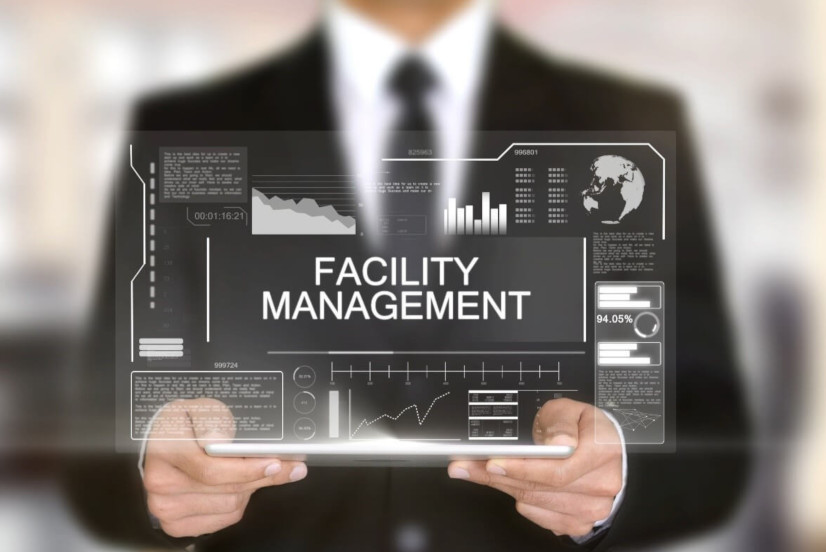The Advantages of Choosing Total Facility Management for Your Organization
The Advantages of Choosing Total Facility Management for Your Organization
Blog Article
Leading Advantages of Total Facility Management for Streamlined Workflow
Total Facility Management (TFM) represents a calculated strategy to enhancing functional effectiveness by integrating different services, such as upkeep and security, under a unified management framework. The question stays: what certain benefits can organizations harness from embracing TFM, and how might these benefits change their operational landscape?
Improved Functional Efficiency
Enhanced operational effectiveness is a main benefit of carrying out total facility management (TFM) strategies. TFM incorporates a detailed method to managing a center's resources, processes, and infrastructure, eventually improving operations. By settling various services-- such as upkeep, safety and security, area, and cleaning management-- TFM decreases redundancies and enhances sychronisation amongst various operational features.
The combination of technology more enhances this efficiency. Advanced facility management systems give real-time data analytics, enabling facility managers to make enlightened decisions that improve process and source allotment. Predictive maintenance techniques, for instance, prepare for devices failures before they happen, lowering downtime and prolonging property life expectancy.
In addition, TFM advertises standardized procedures throughout numerous departments, guaranteeing consistency and high quality in service shipment. This uniformity minimizes functional interruptions and cultivates a more joint working environment. Because of this, workers can concentrate on their core duties, driving efficiency and improving general performance.

Cost Decrease and Cost Savings
Carrying out total facility management (TFM) not just enhances functional effectiveness yet likewise dramatically adds to set you back reduction and financial savings. By settling numerous solutions under a solitary management structure, organizations can eliminate redundancies and enhance procedures, thus decreasing functional expenses. TFM makes it possible for better procurement methods, permitting firms to negotiate bulk acquiring arrangements with distributors and provider, resulting in reduced costs.
Furthermore, TFM emphasizes precautionary maintenance, which lessens unanticipated breakdowns and expands the life expectancy of important tools. This positive method not only minimizes repair work prices but also improves the integrity of facilitiess, guaranteeing nonstop procedures. Additionally, power effectiveness initiatives, often a crucial emphasis of TFM, lead to considerable cost savings on energy costs, as facilitiess are maximized for lowered energy intake.
Improved Resource Management
Efficient resource management is a foundation of total facility management (TFM), allowing organizations to enhance the usage of their assets and workforce. By applying TFM strategies, organizations can adequately analyze their resource allocation, ensuring that every possession is utilized successfully and effectively. This holistic technique permits for the identification of underperforming resources and the potential for reallocation or improvement.
Furthermore, TFM assists in the integration of innovation for real-time monitoring of resources, which assists in predicting upkeep requirements and preventing pricey downtime. By leveraging data analytics, companies can make educated decisions regarding resource release, ultimately improving productivity and reducing waste.
Furthermore, TFM promotes a society of constant enhancement, urging teams to consistently evaluate and improve their source management techniques. Total Facility Management. This aggressive position not just decreases functional interruptions however additionally promotes technology, as workers are empowered to recommend enhancements based on their direct experiences with source usage
Streamlined Interaction Networks
In total facility management, streamlined interaction channels play a vital duty in fostering collaboration and performance across teams. Efficient interaction makes sure that all stakeholders, consisting of facility managers, upkeep staff, and company, are aligned with business objectives and operational requirements. By developing clear lines of interaction, groups can promptly deal with worries, share updates, and execute remedies, therefore minimizing downtime and enhancing performance.
With centralized communication systems, details is quickly available, enabling real-time updates on maintenance demands, source allowance, and job timelines. This transparency not just reduces misconceptions however likewise empowers employees to make informed decisions promptly. Streamlined interaction helps with much better sychronisation throughout emergency situations, guaranteeing that all workers are educated right here and can react quickly.

Boosted Focus on Core Activities
A key advantage of total facility management is the enhanced focus on core activities, allowing companies to focus on their key company purposes - Total Facility Management. By contracting out non-core features such as cleansing, maintenance, and security, business can reroute their sources and power in the direction of critical campaigns that directly contribute to their competitive advantage and growth
Total facility management integrates different operational jobs under a solitary umbrella, promoting performance and lessening redundancy. This consolidation not just enhances processes however likewise enhances accountability, guaranteeing that every aspect of the facility runs harmoniously without diverting attention from what truly matters-- core organization features.
Moreover, this technique enables employees to commit their time and initiatives to tasks that drive development and improve consumer fulfillment, rather than getting stalled by operational challenges. With a reliable facility management companion managing day-to-day procedures, companies can achieve better agility, react quickly to market changes, and keep a sharper concentrate on their goal.
Eventually, raised concentrate on core tasks results in boosted overall performance, permitting organizations to enhance their market position and satisfy their critical goals better. - Total Facility Management
Final Thought
In conclusion, Total Facility Management dramatically boosts functional performance visit this page by consolidating necessary solutions and leveraging data analytics for informed decision-making. Cost decreases and boosted source management contribute to overall savings, while streamlined communication channels foster collaboration among stakeholders.
Total Facility Management (TFM) stands for a calculated strategy to enhancing functional performance by incorporating different services, such as maintenance and safety and security, under a unified management structure.Boosted functional performance is a main benefit of executing total facility management (TFM) techniques. Advanced facility management systems give real-time information analytics, allowing facility managers to make enlightened choices that enhance workflow and source appropriation.Carrying Check Out Your URL out total facility management (TFM) not just enhances operational efficiency yet likewise substantially contributes to set you back reduction and cost savings.Efficient resource management is a foundation of total facility management (TFM), making it possible for organizations to optimize the usage of their assets and labor force.
Report this page